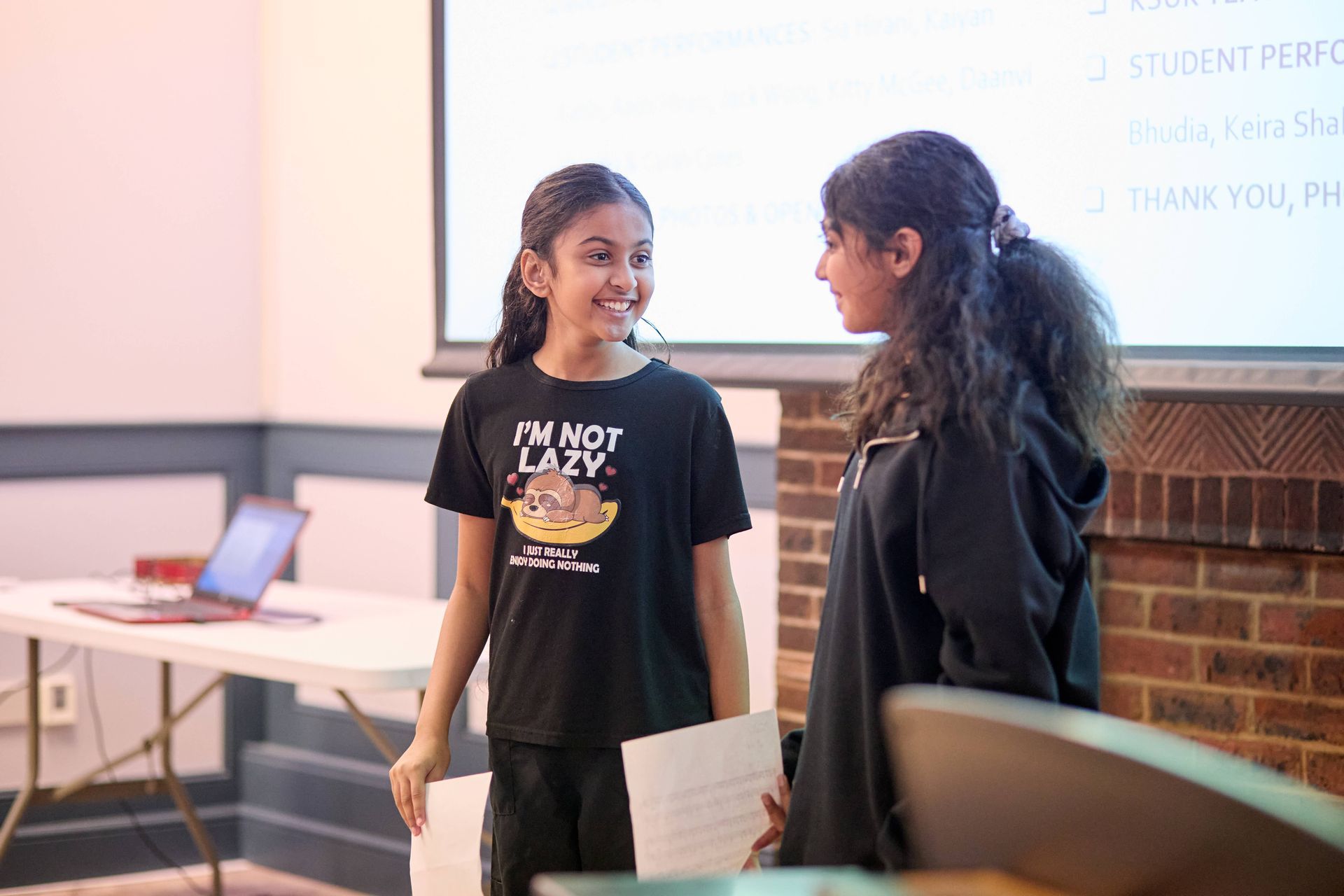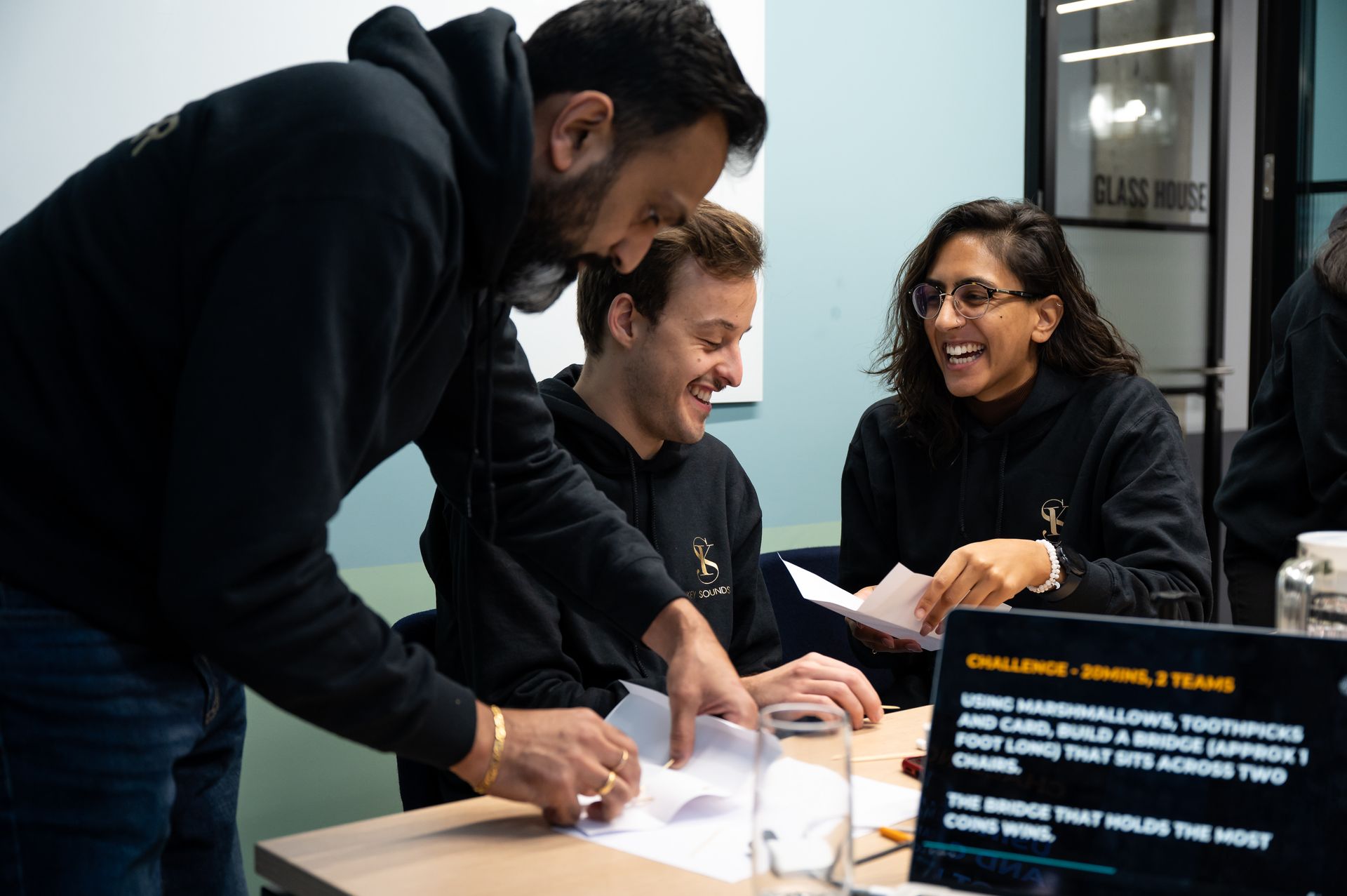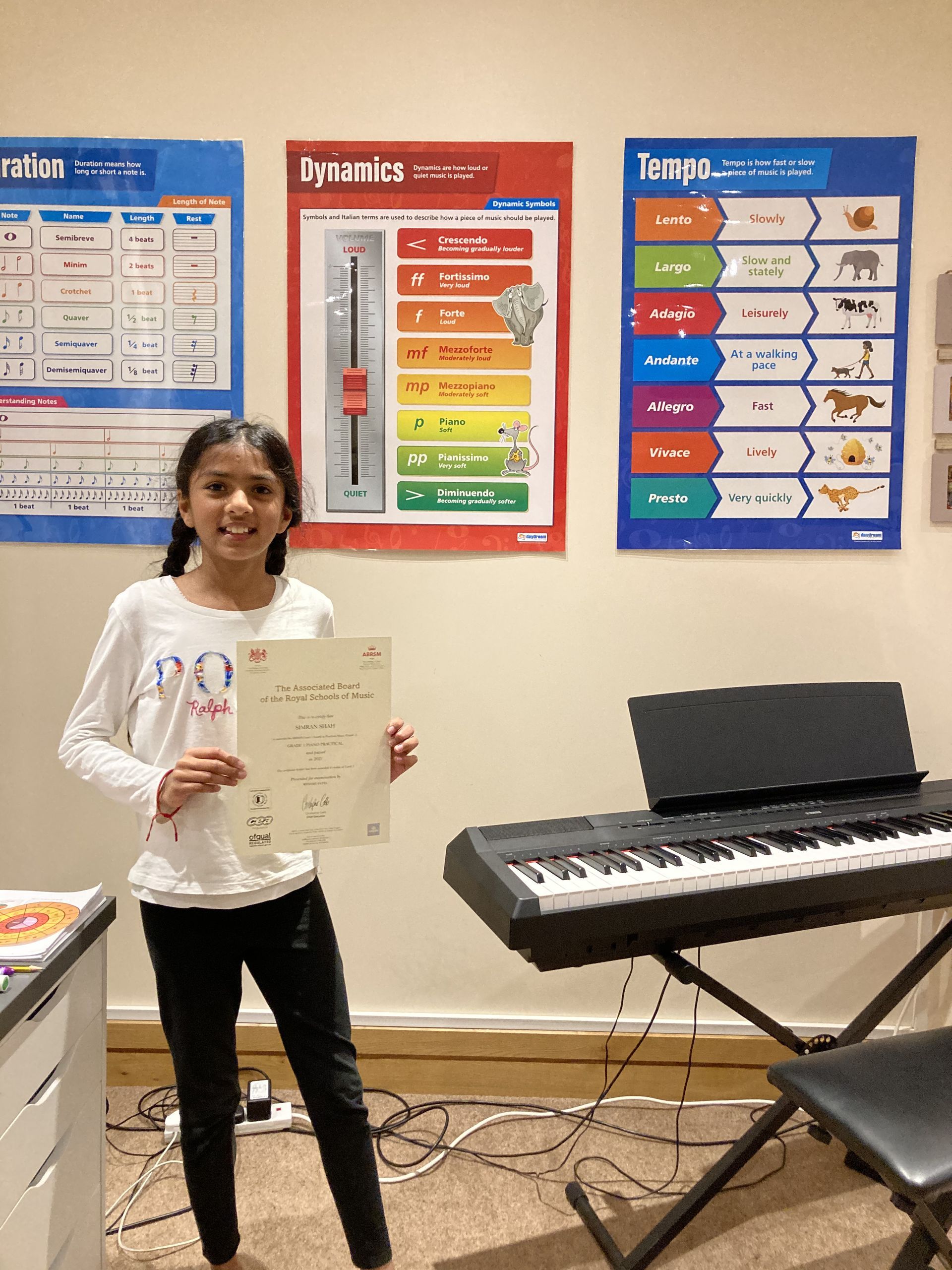Blog

Practicing the piano should be both productive and enjoyable. Here are some expert tips to make the most out of your practice sessions: 1. Warm Up Properly Before diving into your pieces, warm up with finger exercises, scales and arpeggios to improve dexterity. 2. Use the 3C’s: Confidence, Communication, and Community At our piano school, we emphasize these three pillars to accelerate learning: Confidence: We provide regular feedback and encouragement to help students believe in their abilities. Communication: Regular progress check-ins ensure that students stay on track and adjust learning strategies as needed. Community: Through our student concerts we provide students with the opportunity to share their progress and learn from each other, making the experience more fulfilling. 3. Mix Up Your Practice Routine Avoid boredom by alternating between technical exercises, sight-reading, and playing your favourite songs. 4. Take Breaks Short breaks during long practice sessions prevent mental fatigue and improve focus. 5. Play for Others Sharing your music with family, friends, or at our regular concerts helps you gain confidence and refine your performance skills. By incorporating these methods, you’ll improve faster while enjoying the process. Get in touch to find out more information here: www.keysoundsuk.com/contact

Music theory is the foundation of great piano playing. Here are the essential concepts every beginner should know: 1. Notes and the Musical Alphabet Music consists of 12 notes: A, B, C, D, E, F, G, and their sharps and flats. Learning the notes on the keyboard is the first step. 2. Understanding Rhythm and Time Signatures Time signatures tell you how many beats are in each measure. The most common is 4/4 time, where each measure has four beats. 3. Chords and Scales Scales build finger strength and understanding of key signatures, while chords provide harmonic structure. Start with major and minor scales, then move to simple triads. 4. Intervals and Ear Training Intervals (the distance between two notes) help with sight-reading and ear training, allowing you to recognize harmonies in music. 5. Reading Sheet Music Learning how to read notes on the staff will allow you to play a wider variety of music and become more independent as a pianist. 6. Applying Theory to Playing Understanding theory isn’t just academic - it helps you improvise, compose, and interpret music more expressively. By mastering these basics, you’ll build a solid foundation for piano success! Get in touch to find out more information here: www.keysoundsuk.com/contact

Learning to play the piano is more than just mastering an instrument, it’s a skill that can enrich your life in countless ways. Whether you dream of a full-time career in music, a side gig performing or teaching, or simply want to enjoy playing as a hobby, the piano offers lifelong benefits. Here’s why sticking with piano practice, whether you’re a beginner or an intermediate player, is always a great idea. 1. Opens Doors to Musical Career Opportunities If you’re passionate about music, learning the piano can lead to exciting career paths. You could become a professional musician, a music teacher, an accompanist, or even a composer. With dedication and practice, the piano can be a stepping stone to a fulfilling career in the music industry. 2. A Side Gig with Endless Possibilities Even if you don’t pursue music full-time, piano skills can provide additional income opportunities. You could play at events, teach lessons part-time, or collaborate with other musicians. Having a musical side gig can be both financially and personally rewarding. 3. Enhances Cognitive and Emotional Well-Being Studies show that playing the piano improves memory, coordination, and concentration. It also serves as a creative and emotional outlet, helping to relieve stress and boost overall mental well-being. 4. Builds Confidence and Discipline Learning piano requires patience, practice, and perseverance. As you progress, you’ll develop confidence in your abilities and a sense of achievement that carries over into other areas of life. 5. Lifelong Enjoyment as a Hobby Even if you never perform professionally, playing the piano is a rewarding lifelong hobby. Whether you’re playing for yourself, family, or friends, music brings joy and relaxation at any age. 6. Social and Collaborative Opportunities Piano playing isn’t just a solo activity. You can join bands, accompany singers, or participate in community events. Music fosters connections and brings people together in meaningful ways. Whether you pursue piano as a career, a side gig, or a hobby, the benefits are undeniable. From cognitive growth to creative expression, piano playing is a skill that stays with you for life. Keep practicing, stay motivated, and enjoy the journey because every note you play adds value to your life. Get in touch to find out more information here: www.keysoundsuk.com/contact

Many people hesitate to learn piano due to common myths that discourage them. Let’s debunk these misconceptions and show why anyone can succeed at playing piano. 1. "You Need to Start as a Child to Be Good" While starting young has advantages, adults can learn just as effectively with consistent practice and the right approach. Many adult beginners achieve great results by setting structured goals. 2. "You Must Have Natural Talent to Play Well" Talent helps, but piano playing is a skill that improves with practice. Even professional musicians rely more on dedication than raw talent. 3. "Learning to Read Music Is Too Hard" Reading sheet music may seem daunting at first, but it’s like learning a new language. With step-by-step guidance and regular practice, anyone can master it. 4. "You Need an Expensive Piano to Learn Properly" A high-end piano is nice, but not necessary. A simple digital keyboard with weighted keys is enough to build skills and technique. 5. "Practicing for Hours Every Day Is Required to Improve" Quality matters more than quantity. Short, focused practice sessions (20–30 minutes) with proper technique yield better results than mindless repetition. By breaking these myths, more people can confidently start their piano journey and enjoy the process! Get in touch to find out more information here: www.keysoundsuk.com/contact

Learning to play the piano is an exciting journey, and many students choose to follow a structured grading system, such as ABRSM, RCM, or Trinity College exams. These exams provide a clear roadmap for progress, but are they the right choice for every pianist? Let’s explore the pros and cons of graded piano exams to help you decide. Pros of Graded Piano Exams 1. Structured Learning Path – Grading systems provide a clear syllabus, ensuring students develop technique, sight-reading, and theory in a progressive manner. 2. Motivation and Goals – Exams give students specific targets to work towards, which can boost motivation and a sense of achievement. 3. Recognition and Credentials – Successfully passing exams provides certificates that can be useful for academic applications or music-related careers. 4. Feedback from Experts – Examiners offer constructive criticism and professional feedback to help students improve. 5. Skill Development – Preparing for exams builds discipline, performance confidence, and time management skills. Cons of Graded Piano Exams 1. Pressure and Stress – The exam environment can be stressful, which may discourage some students from enjoying the learning process. 2. Limited Repertoire – Grading systems focus on set pieces, potentially limiting exposure to a wider variety of music styles. 3. Focus on Technicality Over Creativity – Exams emphasize technique and accuracy, sometimes at the expense of creativity and personal interpretation. 4. Not Suitable for Every Learner – Some students may thrive with a more flexible, self-paced approach rather than a rigid grading structure. 5. Cost and Time Commitment – Preparing for and taking exams can be expensive and time-consuming, which may not suit every student’s lifestyle or budget. Grading systems offer a valuable framework for structured learning and skill development, but they are not the only path to mastering the piano. Some students benefit from the discipline and motivation that exams provide, while others thrive with a more flexible, exploration-based approach. Ultimately, the best path depends on the individual’s goals, learning style, and personal enjoyment of music. Get in touch to find out more information here: www.keysoundsuk.com/contact

Parental involvement can significantly enhance a child's learning experience, particularly when it comes to music education. If your child is taking piano lessons, whether through home visits or at a teacher’s house, attending their lessons can have a positive impact on their progress. Here are some key benefits of sitting in on your child’s piano lessons. 1. Encourages Consistency in Practice When parents observe lessons, they gain a better understanding of what their child is learning. This enables them to reinforce concepts and techniques during practice sessions at home, leading to more effective learning and progress. 2. Strengthens Parent-Child Bond Sharing in the learning experience helps build a stronger connection between parent and child. It allows parents to show interest in their child’s musical journey, which can boost the child’s enthusiasm and motivation to improve. 3. Provides Support and Encouragement Children thrive on positive reinforcement. When parents are present, they can offer immediate praise and encouragement, making the learning process more enjoyable and fostering a sense of achievement. 4. Enhances Communication with the Teacher By attending lessons, parents can directly communicate with the teacher about their child’s progress, challenges, and areas for improvement. This creates a collaborative learning environment and ensures that both the teacher and parent are aligned in their approach. 5. Helps Create a Comfortable Learning Environment For children who receive lessons at home, having a parent nearby can provide a sense of security and comfort, especially for younger students. Similarly, if lessons take place at the teacher’s house, a parent's presence can help the child feel more at ease in an unfamiliar setting. Whether your child is learning piano through home visits or at a teacher’s house, sitting in on their lessons can be incredibly beneficial. From reinforcing practice habits to strengthening your relationship with your child, your presence can make a significant difference in their musical journey. By being actively involved, you can support and inspire them to reach their full potential while making music a more enjoyable and rewarding experience. Get in touch to find out more information here: www.keysoundsuk.com/contact

Learning piano is an exciting journey, but beginners often run into the same challenges. Don’t worry—every pianist makes mistakes! The key is knowing how to fix them early. Let’s look at the five most common mistakes and how you can avoid them. 1. Skipping Warm-Ups Warming up might not seem exciting, but it’s essential for improving technique and preventing hand strain. Fix: Start each practice with simple finger exercises like scales and arpeggios. 2. Ignoring Posture & Hand Position Bad posture can cause tension and slow down your progress. Fix: Sit with a straight back, relaxed shoulders, and curved fingers. Ask your teacher to check your posture! 3. Relying Too Much on Sheet Music It’s tempting to read every note instead of listening and feeling the music. Fix: Try memorizing small sections and playing by ear to develop musical intuition. 4. Playing Too Fast, Too Soon Rushing through a piece leads to mistakes and frustration. Fix: Start slow! Gradually increase speed once you can play accurately. 5. Not Practicing Consistently Cramming hours of practice into one day won’t help—you need steady, regular practice. Fix: Even 10–15 minutes a day is better than one long session a week. Action Tip: Pick one mistake to focus on this week and make a small change to improve it! Get in touch to find out more information here: www.keysoundsuk.com/contact .

Technology has revolutionised how we learn music! With AI-powered apps, interactive keyboards, and smart practice tools, learning the piano has never been more exciting or effective. But can AI actually help you learn faster? Let’s find out! How AI is Changing Piano Learning Real-Time Feedback: Apps like Simply Piano and Flowkey listen to your playing and give instant feedback. Personalized Learning Paths: AI can analyze your progress and suggest exercises tailored to your skill level. Interactive Accompaniment: Some platforms allow you to play along with virtual bands and orchestras! Motivation & Gamification: AI-powered games and progress tracking keep students engaged and motivated. Should You Use AI for Learning? While AI tools can be a fantastic supplement to your learning, they work best when combined with human instruction. A real teacher provides emotional encouragement, personalized feedback, and deeper musical insights that AI can’t yet replace. Action Tip: Ask your teacher if there is piece of technology or app you can use alongside your piano lessons and use it for extra practice between sessions! Get in touch to find out more information here: www.keysoundsuk.com/contact .

If you’re thinking about learning the piano, you might be wondering: should you take lessons online or in person? The good news is that there’s no wrong choice! Both options have their perks, and the best one depends on your learning style, lifestyle, and goals. Let’s break it down! The Perks of Online Piano Lessons Flexibility: Learn at your own pace, anytime, anywhere. Access to Top Teachers: You’re not limited by location—you can study with amazing teachers worldwide. Technology & Tools: Many platforms offer interactive features like video feedback, AI-generated practice recommendations, and virtual sheet music. Affordability: Online lessons can sometimes be more budget-friendly than in-person instruction. The Benefits of In-Person Piano Lessons Immediate Feedback: Your teacher can adjust your posture, hand position, and technique instantly. Accountability: Having a set lesson schedule with a teacher can keep you motivated and consistent. Better Engagement: Some students thrive with in-person interaction and find it easier to focus. Which One is Right for You? If you love flexibility and access to global resources, online lessons might be your best bet. If you thrive on real-time interaction and hands-on guidance, in-person lessons could be ideal. Some students even choose a hybrid approach! Get in touch to find out more information here: www.keysoundsuk.com/contact .
